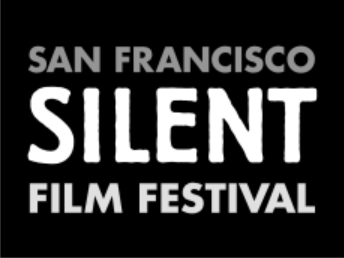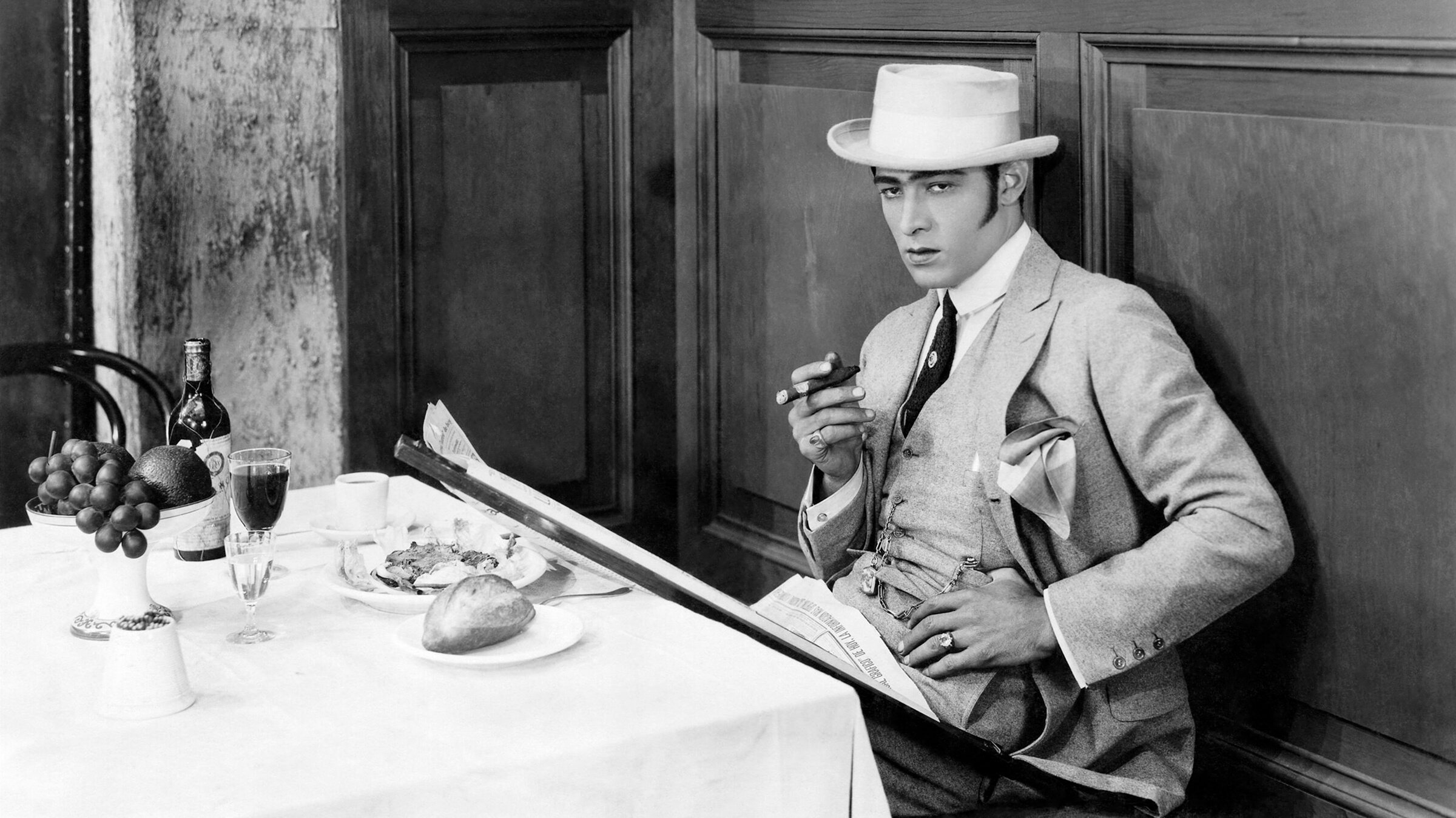This feature was published in conjunction with the screening of The Eagle at A Day of Silents 2023.
A bodice-breaching lover from a torrid romance novel come to life, Valentino tangoed his way to matinee idol status in that Buenos Aires dive in 1921’s The Four Horsemen of the Apocalypse. When influential critic Robert Sherwood selected his 1922 bullfighter film Blood and Sand as one of sixteen favorites of that year, he captured the enormous impact Valentino had had in such a short time, as well as hinted at the actor’s reluctance about the whole thing: “This swarthy Italian dancer has been the most extensively worshipped of all the matinee idols in the history of the theatre; his photograph has been pasted on at least one mirror in almost every home throughout this country; he has been the embarrassed recipient of a flood of fan letters that reached an average of some 4,500 a week … a symbol of masculine attraction to everyone—from sixteen to sixty.”
Fellow idols of similar rank like Sessue Hayakawa, Wallace Reid, and Jack Gilbert bristled, too, against their typecasting—hardly an uncommon affliction in Hollywood—and all three attempted with limited success to escape its narrow confines. Hayakawa, whose resistance, like Valentino’s, included the second front of bigotry, broke with the studios entirely and made films independently (until he had to leave altogether). What Reid and Gilbert really wanted to do was direct. They might have settled for playing more complex characters, even in smaller films, yet both ended up basically sacrificed to fame.
Valentino tried, pulling a Garbo (before Garbo) and went on strike over career control (and money). Among his subsequent roles, his portrayal of the action hero/one-woman man in The Eagle still stands out as an exception; he once called it the first of his films that “has really been of my own choosing.” After Valentino unexpectedly died less than a year later, some lamented an industry that had wasted his talent. “The madness to cast Valentino in romantic pictures pursued,” Jim Tully wrote in Vanity Fair. “But through all this maze of bad taste Valentino groped. None of it helped him as he wished to be helped.” While acknowledging he was a beneficiary as well as a victim, Valentino often shared his own laments, leaving us with glimmers of what might have been.
A BORGIA
Tully’s obituary was particularly mournful for the career and for the artist. The vagabond-turned-chronicler-of-movieland sprinkled his obituary with snippets of his past conversations with the actor, including this revealing exchange: “I once asked Valentino which character he would like best to play on the screen. ‘Cesare Borgia,’ he answered. Surprised, I watched him closely as he continued. ‘It would not be popular, but I want to play it for my very own. Borgia was not the man they say he was. His story was written by his enemies.’ Forgetful of an interviewer who might deal with him unkindly, he quoted Machiavelli, Villari, Gregorovius and Sabatini to prove his points. Thinking of American women I ventured: ‘But Cesare had a mustache.’ ‘I’d play him with one.’”
A FARMER
Business manager S. George Ullman’s memoir released two months after the actor’s death quotes Valentino as wanting to play not only Borgia but Christopher Columbus and “before I finish, I want most of all to play a Gypsy and an Apache.” Opportunistic calculations aside, Ullman expressed a great deal of warmth for the actor in his book and recalled a conversation they’d had about Valentino’s path to stardom while he happened to be in costume for The Son of the Sheik: “I wonder what would have become of me if I had stayed in Castellaneta, bought a piece of land and become a scientific farmer? Can you picture the scene?”A
A COWBOY
Helen Louise Walker interviewed Valentino ten days before he succumbed to peritonitis but only prepared the conversation for publication much later, for a 1933 issue of Motion Picture magazine on the seventh anniversary of his death. “I have thought of doing a Western—a cowboy role—against the colorful romantic background of the Southwest.” Sensing Walker’s skepticism, Valentino continued: “I don’t mean the regulation sort of thing, of course. I mean a real story—with the feeling of the sweep and color of that early history. There were Latin types who figured in that pageant—Spaniards, even Italians! They weren’t all ‘Virginians,’ you know … I shall be surprised if we succeed.”
NO SHEIKS
“I’m Tired of Being a Sheik,” Valentino’s interview for Collier’s, took place in late 1925 and was published in January 1926 before The Son of a Sheik was agreed upon as his follow-up to The Eagle. “Heaven knows I’m no sheik! Look at this ‘sleek black hair.’ Getting a bit thin about the temples, isn’t it? … I had to pose as a sheik for five years! … A lot of the perfumed ballyhooing was my own fault. I wanted to make a lot of money and so I let them play me up as a lounge lizard, a soft, handsome devil whose only aim in life was to sit around and be admired by women. And all that time I was a farmer at heart and still am … I was happier when I slept on a bench in Central Park than during all the years of that ‘perfect lover’ stuff … No more posing Apollo stuff for me. If any producer comes to me with a sheik part I am going to murder him! I am going to show I am a real actor if I have to play Hamlet in a waiter’s tuxedo.”

